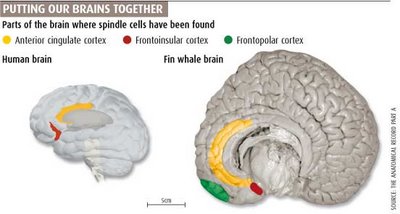Last chance to see?
The world's reefs are suffering from more frequent periods of coral die-off than at any time in the past 11,000 years, according to a study by John Pandolfi and colleagues published on 13 December (reported here too).
One news article quotes Prof Pandolfi as saying the study supports the economic case for Australia signing up to the Kyoto Protocol as a first step to tackling global warming, which is one of the greatest threats to reefs. The Great Barrier Reef generates about A$6bn a year in tourism revenues every year.
So here's the dilemma. A great number of tourists visiting the Great Barrier Reef come on long haul flights. Each one of those is responsible for emissions vastly greater than is likely to be sustainable. What do you do?
I raised this point at a meeting at ITMEMS that included top scientists and managers from the Great Barrier Reef Marine Park Authority. They were very much aware of it, and said there was a lot of hard thinking going on, including about offsets.
It would be interesting to get to the grips with the numbers. Is there any politically plausible path to significantly reducing emissions from the tourism sector itself? If not, exactly how would emissions be offset and where?
Can a long haul tourist's willingness-to-pay for a reef-with-a-future extend as far as coughing up serious extra cash for, say, more rapid uptake of carbon capture and storage in China?
What about just taking as much money as possible for the reefs now, building supercasinos when they are gone, and leaving recovery to the very long run?
(see also Ecotourism: Traveling the World to Help Save It and Eco-tourism: A sustainable trade? by James Mair.)
One news article quotes Prof Pandolfi as saying the study supports the economic case for Australia signing up to the Kyoto Protocol as a first step to tackling global warming, which is one of the greatest threats to reefs. The Great Barrier Reef generates about A$6bn a year in tourism revenues every year.
So here's the dilemma. A great number of tourists visiting the Great Barrier Reef come on long haul flights. Each one of those is responsible for emissions vastly greater than is likely to be sustainable. What do you do?
I raised this point at a meeting at ITMEMS that included top scientists and managers from the Great Barrier Reef Marine Park Authority. They were very much aware of it, and said there was a lot of hard thinking going on, including about offsets.
It would be interesting to get to the grips with the numbers. Is there any politically plausible path to significantly reducing emissions from the tourism sector itself? If not, exactly how would emissions be offset and where?
Can a long haul tourist's willingness-to-pay for a reef-with-a-future extend as far as coughing up serious extra cash for, say, more rapid uptake of carbon capture and storage in China?
What about just taking as much money as possible for the reefs now, building supercasinos when they are gone, and leaving recovery to the very long run?
(see also Ecotourism: Traveling the World to Help Save It and Eco-tourism: A sustainable trade? by James Mair.)

